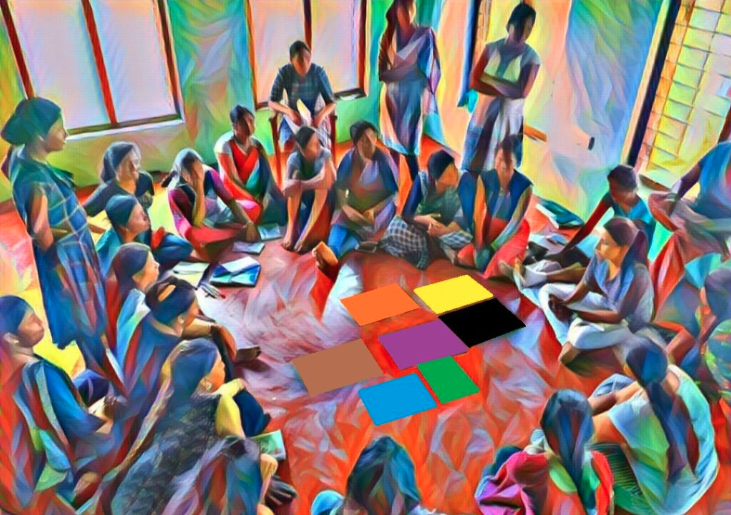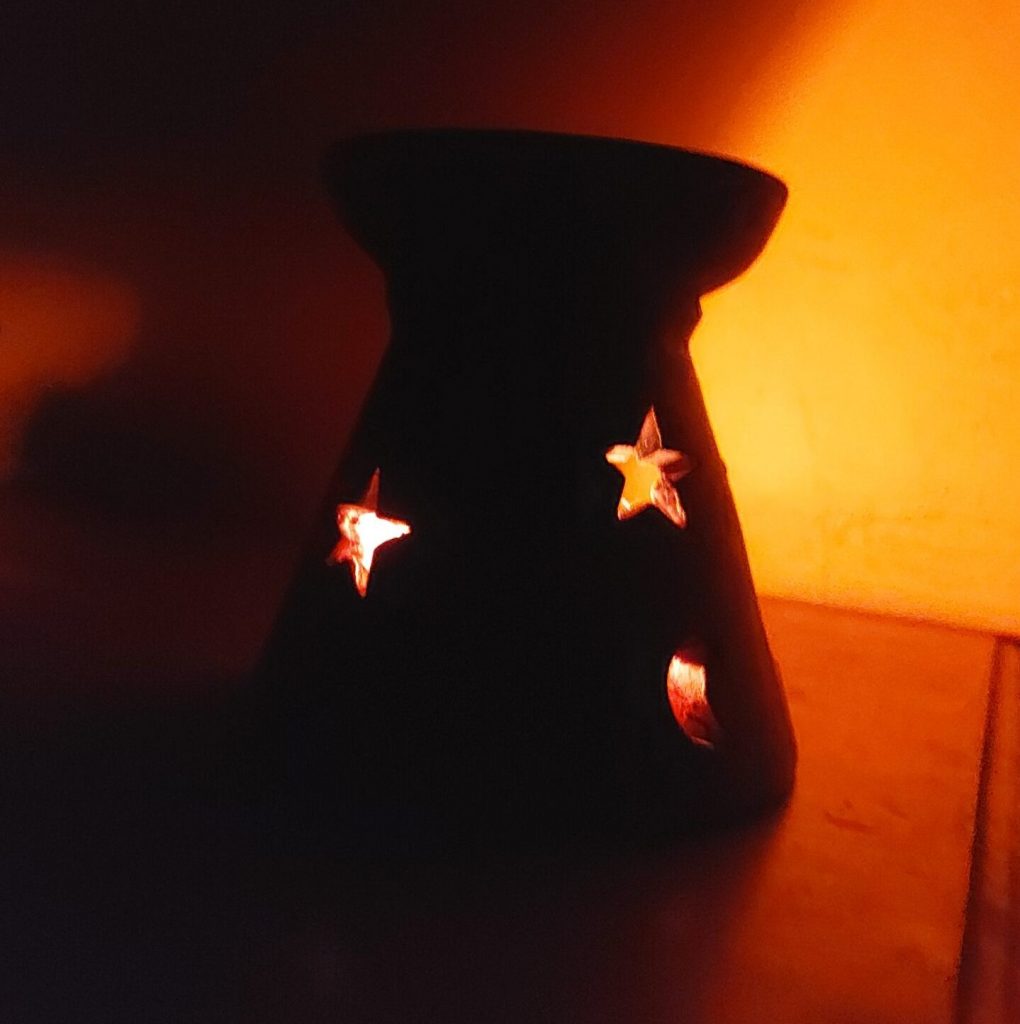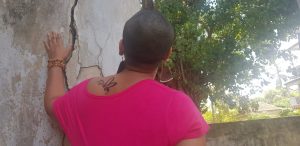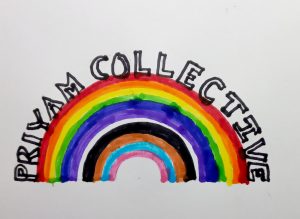In the past few years, Priyam Collective has held several workshops in the North and the East of Sri Lanka that brought diverse communities together to think about questions of sex, gender, sexuality, feminisms, queerness, sexual and reproductive rights, including abortion, legal reforms, issues related to disability, class and caste struggles, and indigeneity of Sri Lanka. We have supported several community members through multiple means and continued the critical dialogue to promote voices across these issues. We believe those with similar consciousness and/or those who productively challenge us and care to offer innovative alternatives will continue to shape the space/collective as we progress in our journeys.

Contexts of Historical Violence
In Sri Lanka, divisions are based on many aspects such as sex, gender, ethnicity, class, caste, age, religion/faith, sexuality, language and disability. Acts of violence targeted at specific communities and the increasing tendency to enforce certain nationalistic, sexist, homophobic, xenophobic, ethnic, and religious ideologies in the country bring further challenges to communities that are already broken and divided by the ethnic conflict a significant period. Furthermore, without a doubt, it primarily affects intersex, trans persons, women and girls. After the Easter attacks, the need for marginalised groups to come together despite their differences is enormous. We believe that this provides a deeper understanding of feminisms and queerness.

Questioning Sex, Gender and Sexuality

In 2018, we, the now Priyam Collective, carried out a project called “The Question of Gender: Enhancing Analytical Fields Based on Feminist Perspectives Among Women Activists and Young Women Community Workers in Northern Sri Lanka” to i) expand the understanding of gender by questioning the prevailing narratives of the gender binary, and ii) identify innovative ways of engaging with the question of gender. Since then, we have been conducting residential discussions (three days long) with women/trans activists and young women community workers from the North and the East of Sri Lanka. The concepts addressed include sex, gender, sexuality, disability, queerness, feminisms, intersectionality, and identity politics. An interactive methodology facilitated the process of challenging many social and cultural barriers when trans persons, intersex persons, and women from different backgrounds gathered to think beyond the popularly established categories and social norms—for example, reading material and documentary and feature films in Tamil on the experiences of those who have been questioning social exclusion like sex, gender, sexuality, caste, class, ethnicity, religion, and language.
The Intersections of Sex, Gender, Sexuality, Ethnicity,
Religion, Disability, and Language
 In the context of post-Easter attacks in Sri Lanka, we shared a desire to expand these conversations with activists from various backgrounds who bring nuances across different forms of marginalisation. On 31 August 2019, in the Eastern town of Batticaloa, a group of trans and women activists and young community workers from different parts of Sri Lanka came together to share their thoughts on the need to expand the question of sex and gender beyond the dominant binary. The unintended outcome of this gathering was a profound sense of community and collaboration. Their sharings were based on their experiences of doing community activism and the obstacles they have been facing to challenge sex and gender norms and practices, like the Muslim women activists from the East for reforming the Muslim Marriage and Divorce Act, artists who use art forms to question gender identities, activists who work on disability rights, and members from the LGBTQIA+ community. The young Muslim women activists very clearly expressed their interest in questioning sex and gender inequalities in their communities.
In the context of post-Easter attacks in Sri Lanka, we shared a desire to expand these conversations with activists from various backgrounds who bring nuances across different forms of marginalisation. On 31 August 2019, in the Eastern town of Batticaloa, a group of trans and women activists and young community workers from different parts of Sri Lanka came together to share their thoughts on the need to expand the question of sex and gender beyond the dominant binary. The unintended outcome of this gathering was a profound sense of community and collaboration. Their sharings were based on their experiences of doing community activism and the obstacles they have been facing to challenge sex and gender norms and practices, like the Muslim women activists from the East for reforming the Muslim Marriage and Divorce Act, artists who use art forms to question gender identities, activists who work on disability rights, and members from the LGBTQIA+ community. The young Muslim women activists very clearly expressed their interest in questioning sex and gender inequalities in their communities.
Further, they showed an interest in learning about sexualities. They thought of examples from their own communities and shared that they did not have the social tools to understand differences before. These were also shared from a rights perspective. The space was filled with respect, appreciation, courage, empathy, care and love across differences. Since then, we have been nurturing this space and multiplied the sense of collaboration. It has taken various forms and shapes, and it has also expanded. We continue this work with a deep sense of fulfilment.
In the Context of COVID-19
 Priyam Collective takes the mental health wellbeing of our communities seriously. When the world was shaken by the changes brought by the COVID-19 global pandemic, we approached this situation based on our learnings from challenging hardships in the past. We continue to embrace the belief that this too shall pass! Caring for one another with an acute awareness of our strengths and limitations has been one of our core values. We continue to resist, gather (virtually), share and grow.
Priyam Collective takes the mental health wellbeing of our communities seriously. When the world was shaken by the changes brought by the COVID-19 global pandemic, we approached this situation based on our learnings from challenging hardships in the past. We continue to embrace the belief that this too shall pass! Caring for one another with an acute awareness of our strengths and limitations has been one of our core values. We continue to resist, gather (virtually), share and grow.
Although access to a decent internet connection has been a considerable challenge, activists and community workers have been benefiting from virtual gatherings in the time of COVID. They have shared that these virtual gatherings are more than a mere check-in. Each time, those two hours help them rejoice and forget the immediate dire situation. They gather to sing songs, share their struggles, make sense of one another’s experiences by empathetic listening, discuss topics and concepts as they emerge organically, especially when reflecting on their journeys, and grow a profound sense of solidarity. Fellow travellers have expressed that coming together like this has a positive impact on their wellbeing. They have also expressed disappointment if a gathering had to be cancelled. Through these virtual gatherings, some have been motivated to work on a series of children books that show a world beyond the binary of sex and genders; some continue to address concerns over self-care and overall wellbeing of one another; and some continue to seek meanings of collaborative work and collective energy through continuous engagement.
Priyam Collective recognises the need to support and celebrate vulnerable persons from marginalised communities, financially as well. Hence, we provide a monthly stipend to a few fellow travellers. We primarily rely on financial contributions from friends of the collective. The selection is made by the collective team based on the needs and interests of activists. In 2020/2021, the financial support helped them survive and continue to inspire the community.
Sustaining and documenting trans experiences, exploring a renewed sense of hope and solidarity building, both nationally and internationally, exploring creative outlets for social change adopted by persons with disability, fighting for the desire to complete higher education despite the increased challenges due to COVID-19, and continuing the fight to bring reforms in terms of the Muslim Marriage and Divorce Act are some examples of the continued resistance of comrades.
